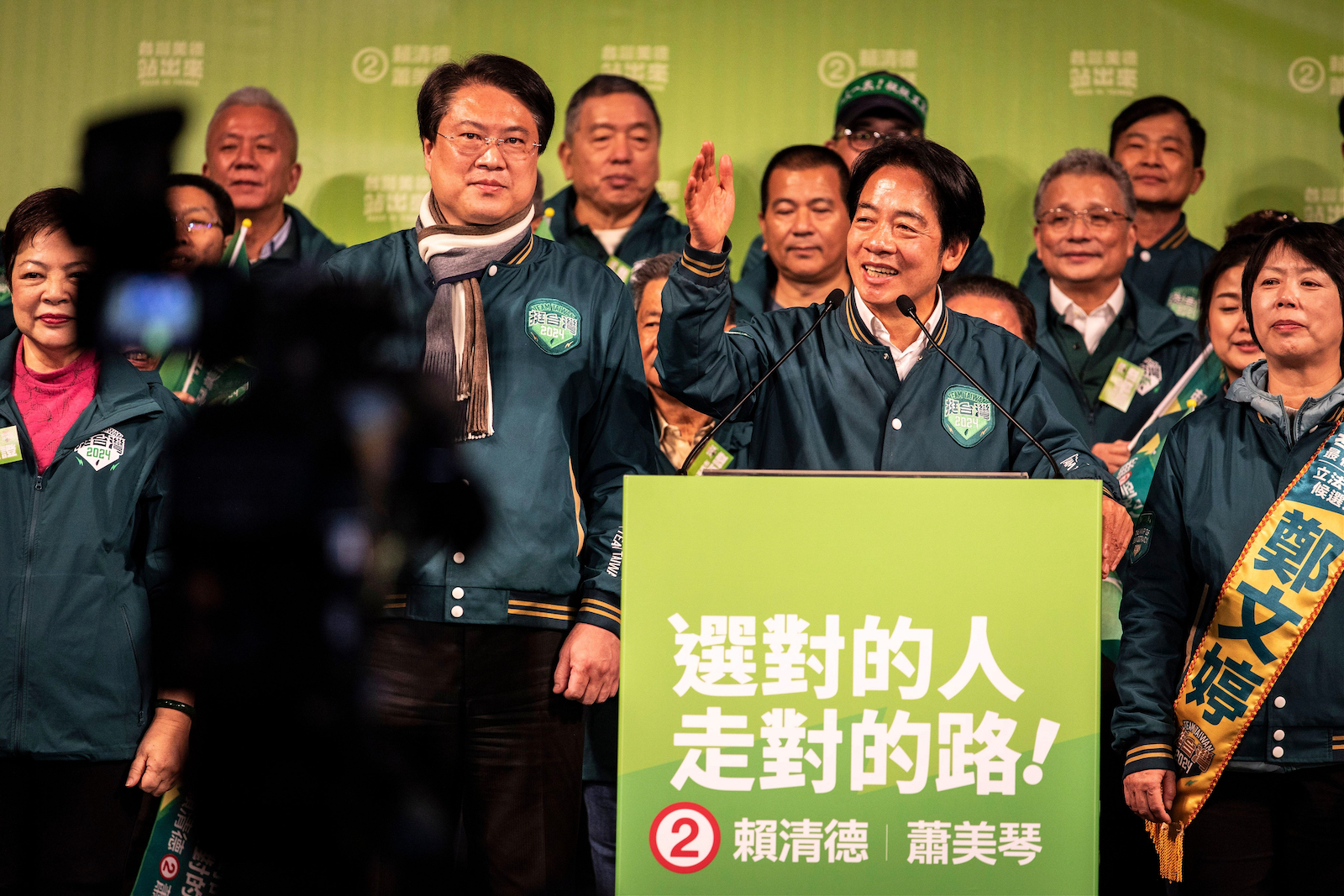
How Taiwan Ignored China and Became a Model Democracy
This month, more than 14 million voters took to the polls in Taiwan, electing the DPP ticket of William Lai and Bi-khim Hsiao and giving the KMT the most seats in parliament. The election results and their implications for relations between Taiwan and the People’s Republic of China have been the subject of plenty of media coverage—rightfully so. But the fair, free, and transparent nature of Taiwan’s elections merit attention, too, as they provide a model for the rest of the world.
Voter turnout is a solid indicator of measuring the health of a democracy, and Taiwan certainly meets the mark. 71% of registered voters turned out in the elections, a number greater than the turnout in the U.S. and UK’s most recent elections. High voter turnout in Taiwan is made possible for a number of reasons. For example, voters are automatically registered to vote once they turn 20. Taiwan’s Ministry of Labor, moreover, recognized election day as a holiday. Although the election took place on a Saturday, this move ensured workers could vote.
Similarly, Taiwan requires voters to vote in person and present identification. All ballots are hand-counted, read out loud, and tabulated publicly. While the in-person voting requirement poses a challenge for citizens overseas who must travel home to submit their ballots, at least they mitigate concerns about vote buying. As Kharis Templeman of Stanford University’s Hoover Institution explains, “If absentee ballots go to Taiwanese voters who live in China, they may be pressured to vote a certain way.”
Elections are one of the cornerstones of a healthy democracy, and Taiwan is a testament to the fact that free, fair, and transparent elections are possible even in the face of coercion. Leading up to the election, Taiwan fended off Beijing’s multiple attempts to interfere, nullifying Beijing’s repeated claims that Taiwan belongs to them. Disinformation campaigns in the election’s lead-up flooded social media channels with rumors like Hsiao being a U.S. citizen, Lai having multiple mistresses, and the U.S. collaborating with the DPP to develop biological weapons in Taiwan. Taiwanese authorities even arrested a journalist for publishing fake polling at the behest of Beijing showing the KMT’s Hou Yu-ih polling ahead of Lai. Similarly, Beijing increased its coercive activities in advance of the election, sending more than thirty balloons across the Taiwan Strait near air bases and launching a satellite over Taiwan that sent an air raid alert nationwide.
Taiwan’s success in shutting down fraud and media corruption contrasts starkly with the elections held in Bangladesh in early January, mired in the crackdown and jailing of members of the opposition party. Incumbent Prime Minister Sheikh Hasina refused to allow a neutral caretaker government to oversee voting polls, resulting in the opposition party boycotting the election. The U.S. has already condemned Bangladesh’s elections as neither free nor fair and is now weighing possible actions to take in response.
More than 50 nations are slated to hold national-level elections in 2024. Many of these elections will test the resolve of their democratic institutions. In Pakistan, three-time Prime Minister Nawaz Sharif will face off against former Foreign Minister Bilawal Bhutto Zardari. Sharif, who was once convicted of corruption charges and ousted from office by the country’s highest court in 2017, will not have to run against former Prime Minister Imran Khan, who remains imprisoned over allegations of disclosing state secrets. In Indonesia, Defense Minister Prabowo Subianto is running against former Central Java Governor Ganjar Pranowo as Prime Minister Joko Widodo is term-limited. Notably, Subianto’s running mate, Gibran Rakabuming Raka, the mayor of Surakarta, is Widodo’s son.
Meanwhile, in the United States, where a Biden-Trump rematch appears all too likely, voters are skittish going into what could be another hotly contested presidential election. Though the U.S. is the beacon of democracy for the rest of the world, it could imitate Taiwan’s elections—where voter turnout was high, candidates gracefully conceded when they lost, and transparency gave voters insight into the electoral process from start to finish.
As Taiwanese Foreign Minister Joseph Wu cautioned in the lead-up to the elections, “If China succeeds in Taiwan, China will use that experience to interfere in the elections of other countries.” Despite its best efforts, it is clear that China was unsuccessful in Taiwan. Now, as other countries gear up for their elections, they should look to Taiwan as an example.
